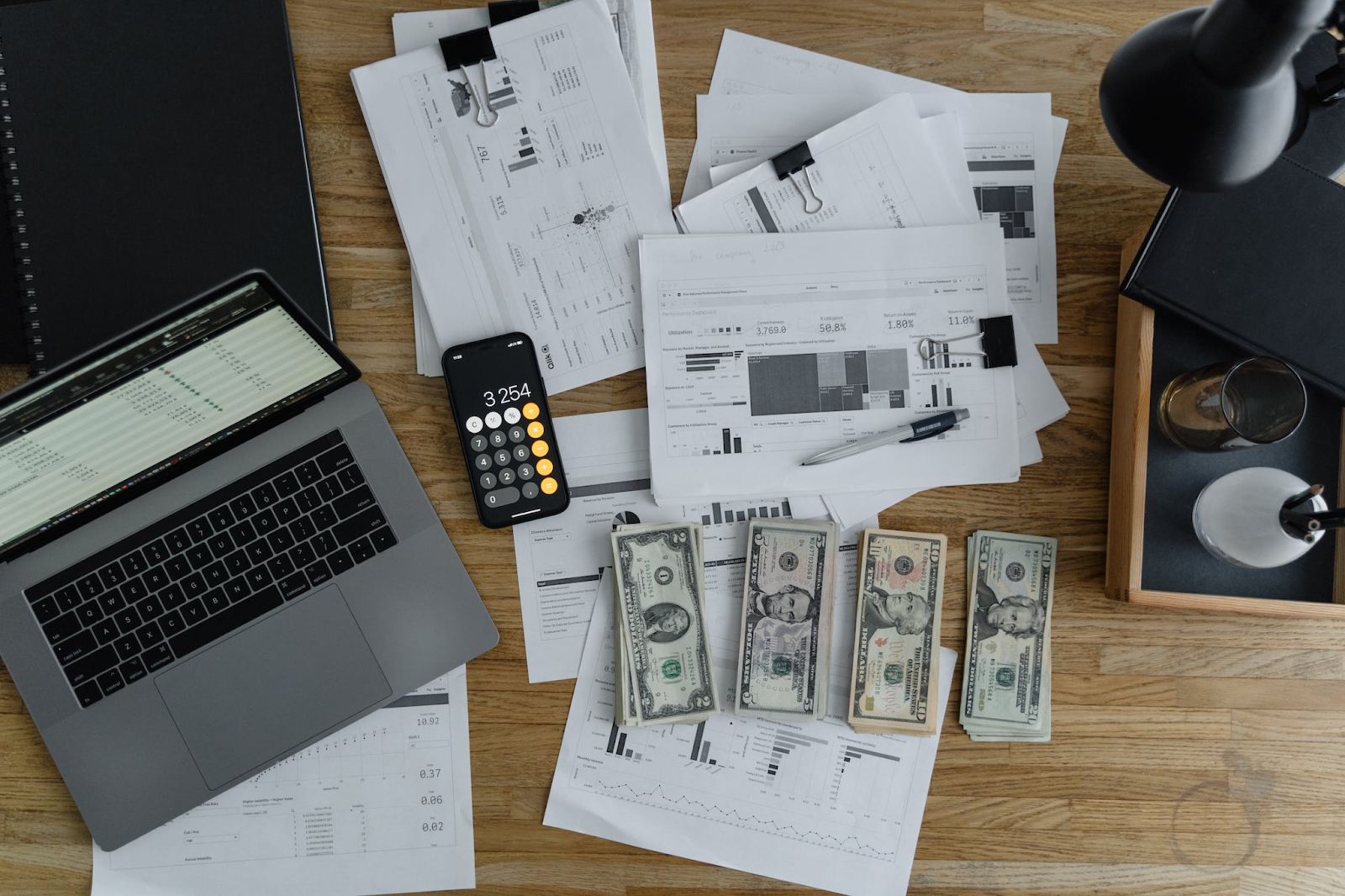You are now leaving the Bright website and entering a third-party website. Bright has no control over the content, products, or services offered, nor the security or privacy of information transmitted to others via their website. We recommend that you review the privacy policy of the site you are entering. Bright does not guarantee or endorse the products, information, or recommendations provided on any third-party website.
In today's fast-paced world, where credit cards and loans have become integral to our lives, many individuals are grappling with multiple debts that seem insurmountable. According to recent statistics, the average American carries a staggering $96,371 in personal debt, a number that has been steadily rising over the years. With the weight of these financial obligations bearing down, it is no wonder people are looking for a lifeline to regain control of their finances.
Enter Debt Consolidation, a financial strategy that offers a glimmer of hope amid the sea of bills. Imagine a world where those countless credit card statements and loan repayment deadlines are condensed into a single, manageable obligation. It may sound like a dream, but it's a dream realized by countless individuals who have embraced Debt Consolidation as a pathway to financial freedom. In this comprehensive guide, we'll unravel the intricacies of Debt Consolidation, exploring how it works, its manifold benefits, and the potential pitfalls you should be aware of.
So, if you're ready to shed the shackles of multiple bills and take charge of your financial destiny, read on. Debt Consolidation might just be the financial lifeline you've been searching for, and this guide will show you how to navigate the waters of debt with confidence and purpose.
Read more: Best ways to consolidate credit card debt
How to Pay Off Several Bills with Debt Consolidation?
Debt consolidation offers a compelling solution for simplifying your financial obligations. It enables you to replace multiple monthly EMIs with a single, more manageable one. This not only reduces the complexity of your financial commitments but can also lead to significant savings.
By consolidating your debts, you free up extra funds that were previously tied up in various payments. These savings can then be strategically utilized to pay off other bills or debts, contributing to improved financial stability.
So, while the primary purpose of Debt Consolidation is to streamline your debt payments, the resulting savings can be a valuable resource for tackling additional financial obligations, making it a versatile tool for achieving your financial goals.
Don't Let Debt Hold You Back. Sign Up with Bright Money and Transform Your Financial Future!

Pay Off Several Bills with Debt Consolidation
Debt Consolidation is a powerful financial tool that can simplify your life and help you regain control of your finances when you're facing multiple bills and debts. While its primary purpose is to streamline your debt payments, it has a unique advantage: you can use Debt Consolidation to pay off multiple bills and transform them into a single, manageable monthly EMI (Equated Monthly Installment). Not only does this simplify your financial obligations, but it can also free up valuable savings that you can then utilize to pay off other bills and financial obligations. Let's delve deeper into how this process works and how it can benefit you.
Understanding Debt Consolidation
Debt consolidation involves taking out a new loan, often at a lower interest rate, to pay off your existing debts. Instead of dealing with multiple creditors and various due dates, you now have a single creditor and one monthly payment. This alone can significantly reduce stress and confusion when it comes to managing your finances.
Ready to Save, Invest, and Thrive Financially? Join Bright Money Today!
The Unique Benefit: Transforming Multiple Bills into One EMI
Now, let's talk about the unique benefit of Debt Consolidation. Consider a scenario where you have multiple credit card bills, a personal loan, and an auto loan. Each comes with its interest rate, due date, and minimum payment. Keeping track of all these can be overwhelming and, in some cases, lead to missed payments or extra fees.
Debt consolidation simplifies this. You take out a consolidation loan, which covers the total amount of your credit card bills, personal loan, and auto loan. With this new loan, you only have to make one monthly EMI payment. This transforms a complex web of multiple bills into a single, manageable payment.
Utilizing the Savings
Here's where the magic happens. By consolidating your debts, you can often secure a lower interest rate compared to the rates on your credit cards or other loans. This means you'll likely pay less in interest over the life of the loan. The monthly EMI is typically lower than the combined minimum payments of your previous debts.
Now, instead of simply enjoying the convenience of one payment, you can use the savings generated by the lower interest rate and reduced monthly EMI to pay off other bills or financial obligations. Let's look at a practical example:
Start Your Journey to a Debt-Free Life with Bright Money. Sign Up Now!
Imagine your previous monthly bills and payments looked like this:
- Credit Card A: $400 per month
- Credit Card B: $300 per month
- Personal Loan: $200 per month
- Auto Loan: $350 per month
- Total Monthly Payments: $1,250
Now, you consolidate these debts into one loan with an EMI of $1,000 per month. You're saving $250 every month. Instead of using this money for discretionary spending, consider using it wisely to tackle other financial commitments.
You can use the savings to:
- Pay Off High-Interest Debt: If you have other high-interest debts, such as medical bills or payday loans, you can allocate the extra funds to pay these off more quickly
- Boost Your Savings: Use the additional funds to build or replenish your emergency fund or savings account. Having a financial cushion can prevent future debt and provide peace of mind
- Invest: If you're in good financial shape and have already addressed other high-interest debts, consider investing the extra money to grow your wealth over time
- Pay Down Your Consolidation Loan Faster: Accelerate your journey to becoming debt-free by making larger payments on your consolidation loan
Read more: Do Consolidation loans hurt your credit?
Conclusion
Debt Consolidation can be a powerful tool for paying off several bills and regaining control of your finances. It simplifies your financial life, lowers interest rates, and reduces monthly payments, making it easier to achieve your financial goals.
However, it's essential to approach debt consolidation with a clear plan and the discipline to avoid accumulating new debt. Following the steps outlined in this guide and staying committed to your financial goals can pave the way to a debt-free future and improved financial well-being.
Join Thousands of Smart Savers. Sign Up for Bright Money and Secure Your Financial Well-being!
Suggested Readings
Credit Score Going Down? Top Factors That Could Be Affecting It
These Budgeting Tips can help you stay on track financially
References:
- https://www.investopedia.com/terms/d/debtconsolidation.asp#:~:text=Debt%20consolidation%20refers%20to%20taking,lower%20monthly%20payments%2C%20or%20both.
- https://www.forbes.com/advisor/personal-loans/pros-and-cons-of-debt-consolidation/
- https://www.onemainfinancial.com/resources/debt-consolidation/how-to-pay-off-several-bills-with-debt-consolidation
- https://www.nerdwallet.com/article/finance/keys-to-successful-debt-consolidation
FAQs
1. Is Debt Consolidation the same as Debt settlement?
No, debt consolidation and debt settlement are two distinct debt management strategies. Debt consolidation involves merging multiple debts into a single, more manageable loan with better terms, such as lower interest rates. It aims to simplify your finances and make repayment more feasible. On the other hand, debt settlement involves negotiating with creditors to settle your debts for less than the full amount owed. While debt settlement can lead to reduced debt balances, it typically has a more significant impact on your credit score and may involve fees or tax consequences.
2. Can I consolidate both secured and unsecured Debts?
Yes, you can consolidate both secured and unsecured debts, but the approach may differ. Secured debts, like mortgages or auto loans, often require collateral, which means you might need to use an asset as security for a consolidation loan. Unsecured debts, such as credit card debts and personal loans, typically don't require collateral. The key is to assess your specific financial situation and choose a consolidation method that aligns with your goals and the types of debts you want to consolidate.
3. Will Debt Consolidation hurt my credit score?
Initially, debt consolidation may have a slight negative impact on your credit score due to the credit inquiry during the application process and the closing of existing credit accounts. However, in the long term, debt consolidation can have a positive impact on your credit score if you make consistent, on-time payments and reduce your overall debt. By lowering your credit utilization ratio and demonstrating responsible debt management, your credit score can improve over time.
4. Are there tax implications to Debt Consolidation?
Debt consolidation typically doesn't have direct tax implications. However, if you're settling debts for less than the full amount through debt settlement, be aware that the forgiven debt might be considered taxable income, which could result in a tax liability. Consult with a tax professional for guidance on your specific situation. Keep in mind that the interest paid on a mortgage or home equity loan used for debt consolidation may be tax-deductible, but tax laws can change, so it's essential to stay informed.
5. Can I consolidate student loans with other Debts?
In most cases, student loans cannot be consolidated with other types of debt through traditional debt consolidation methods. However, you can consolidate federal student loans through a federal Direct Consolidation Loan program, which can simplify repayment but doesn't offer the same benefits as other debt consolidation methods. Private student loans typically can't be included in a federal consolidation. Suppose you want to consolidate student loans with other debts. In that case, you may need to explore alternative methods like a personal loan or home equity loan, but this can be risky, so it's crucial to assess your situation carefully.
Disclaimer
Bright credit is a line of credit that can be used to pay off your credit cards. Subject to credit approval. Variable APR ranges from 9% –24.99%; credit limit ranges from $500 - $8,000. Apr will vary based on prime rates. Final terms may vary depending on credit review. Monthly minimum payments are as low as 3% of the outstanding principal balance plus the accrued interest. Also, you can choose to pay more than the minimum due if you want to pay down the loan faster. Credit line originated by bright or CBW Bank, member FDIC. Products and services are subject to state residency and regulatory requirements. Bright credit is currently not available in all states.



